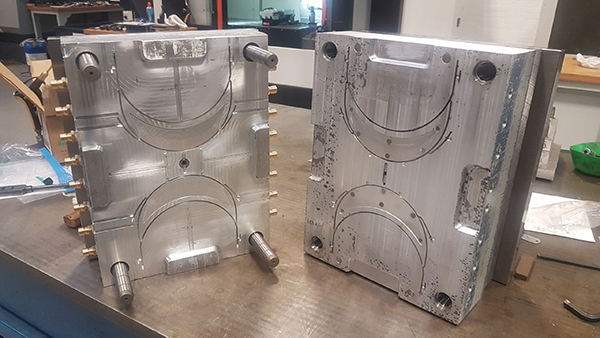An injection moulding specialist helped a public school in Rutland to produce thousands of pieces of PPE for frontline workers during the early days of the COVID-19 crisis.

While Oakham School was closed during lockdown, staff used 3D printers and laser cutters from the Design and Technology Department to begin making face shields. The department approached local company, Rutland Plastics, to help it boost productivity, which took the team from manufacturing just a handful, to 8000 a day.
Rutland Plastics’ technical manager Carl Martin says they were originally asked to 3D print a number of headbands for the shields, but decided it would be more cost effective to manufacture a mould tool using its VISI software package, from which the plastic product could be injection moulded.
“We received the initial design for the 3D printed product, and modified it in VISI to make it suitable for injection moulding,” he says. “Once that was completed and approved, we designed the tool in VISI using a Meusburger bolster with aluminium bolster plates.”
The design then went into the tool room and was milled on the company’s Mazak VCN 530C CNC machining centre, with tool paths created through VISI’s CAM functionality. From taking in the initial 3D design, through turning it into a mouldable product, and finalising the mould tool, took less than a week.
When the two-impression mould was set up on Rutland’s 80-tonne Engel moulding machine, both parts of the headband were formed from a medically-accredited polypropylene every 24 seconds during the production run of 25,000. To complete the full screen face masks, Oakham School arranged for the headbands to be attached to plastic visors, which were then distributed to front line NHS staff.
For further information www.visicadcam.com















